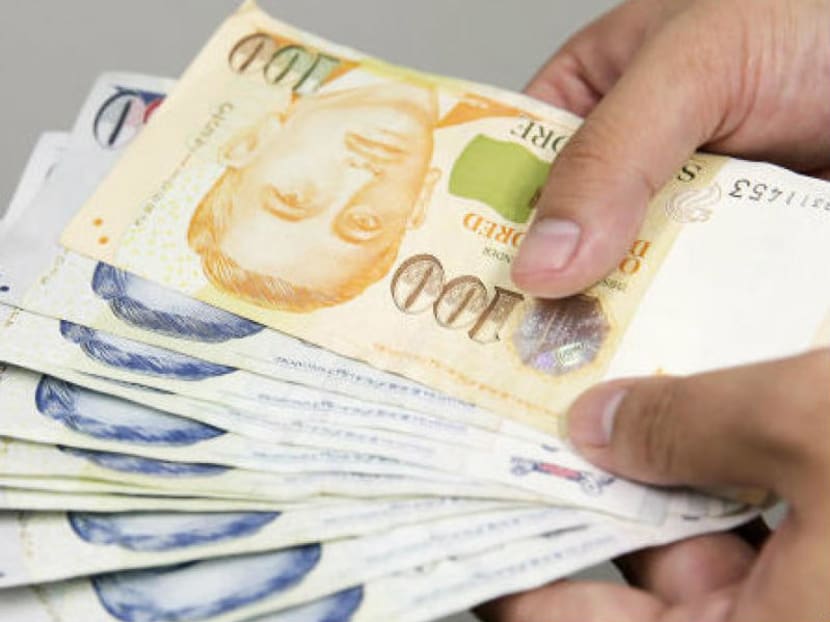Taxman could get powers to force entry, make arrests without warrant for serious tax crimes under draft GST Bill
SINGAPORE — Under proposed changes to the Goods and Services Tax (GST) Act, tax enforcement officers may soon be able to forcibly enter premises, arrest without warrant or conduct body searches of suspects during probes into serious tax crimes.

Tax enforcement officers may soon be able to forcibly enter premises, arrest without warrant or conduct body searches of suspects during probes into serious tax crimes, under proposed changes to the Goods and Services Tax Act.
SINGAPORE — Under proposed changes to the Goods and Services Tax (GST) Act, tax enforcement officers may soon be able to forcibly enter premises, arrest without warrant or conduct body searches of suspects during probes into serious tax crimes.
These powers under the proposed amendments — which could also apply when a suspect attempts to destroy evidence — will be exercised only by trained investigation officers from the Inland Revenue Authority of Singapore (Iras) and "where necessary so that investigations are not impeded", the Ministry of Finance (MOF) said on Thursday (June 28) as it launched a three-week public consultation ending July 18 on the proposed changes.
The MOF added that syndicates and recalcitrant taxpayers are "becoming more active and are employing more sophisticated strategies for tax fraud".
Among other things, the proposed amendments will also allow Iras to share with law enforcement agencies information which it assesses as "critical for investigation or prosecution of serious crimes".
Currently, Iras is allowed to provide information to the agencies under limited circumstances — for example, pursuant to a court order.
The MOF reiterated that the activities of criminals, including syndicates, are often "multi-faceted".
"For instance, their criminal activity may not be limited to tax evasion only, but other forms of illegal activities such as drug dealing and corruption. A whole-of-government approach is needed to better fight such serious crimes," the ministry said.
The proposed amendments also include the introduction of GST on imported services from January 1, 2020, which was announced in Budget 2018. The move will ensure that our GST system remains fair and resilient in a digital economy, the MOF said.
GST on imported services will take effect through a reverse charge mechanism for business-to-business imported services, where the local GST-registered business customer is required to account and pay GST to Iras directly, on the services that it imports.
Under a new overseas vendor registration (OVR) system, overseas suppliers and electronic marketplace operators — which make significant supplies of digital services to local consumers — are also required to register with Iras. Once GST-registered, they will collect GST on their business-to-consumer supplies of digital services and pay it to Iras.
The MOF said the draft bill also incorporates feedback received from public consultation — conducted from February 20 to March 20 — on Iras' draft e-tax guides on reverse charge and OVR. A total of 43 feedback submissions were received, comprising 177 and 93 comments on the reverse charge and the OVR regime, respectively.
Among suggestions which were accepted by Iras was a proposal for more details to be provided on the conditions for electronic marketplace operators to be regarded as a supplier under the OVR system. Iras said it will provide more details and examples of the conditions.
The authority will also provide more details on GST registration and reporting under OVR at a later date. This was based on feedback to allow suppliers liable for GST registration under OVR to complete and submit the GST registration application in advance, before the implementation date. Sufficient lead time will be provided for businesses to prepare for the changes and register for GST to enable them to meet their obligations, Iras said.
Some suggestions were, however, not taken up. These include proposals to narrow the scope of imported services — by excluding those which have no local equivalent, for example — that will be subject to reverse charge, and prescribe the list of services.
Iras reiterated that the policy intent of the reverse charge is to "level the GST treatment for services procured from overseas and those procured locally", given that the tax is imposed on all services consumed in Singapore. "As to the suggestion of prescribing a list that excludes
imported services with no local equivalent, it is envisaged this may create complex definitional and interpretational issues," it added.









